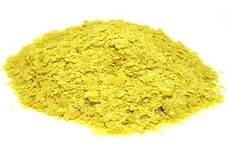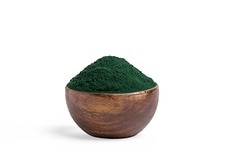Vitamin B12 (Cobalamin)
Most animals and plants are unable to produce vitamin B12 directly. The vitamin is produced naturally by bacteria, and it is also produced as a byproduct of activated charcoal production (in the form of cyanocobalamin). Many animals have bacteria in their digestive systems that produce B12, and some algae, such as chlorella, receive B12 from a symbiotic relationship with bacteria. However, humans generally do not have these bacteria and therefore need to consume it from other sources.
The scientific name for vitamin B12 is cobalamin, which is produced by bacteria. There are several forms of the vitamin, including hydroxocobalamin, methylcobalamin and cyanocobalamin, the latter of which is often used as a supplement.
Foods with Vitamin B12
The best sources of vitamin B12 are from animal products. As a result, many vegans and vegetarians may not get enough B12 in their diets.
The most common significant sources of vitamin B12 include:
- Fish and shellfish
- Meat, poultry and eggs
- Milk and dairy products
Some research how shown that algae like chlorella and spirulina may be good sources of B12; however, additional studies are needed to verify early results.
B12 Fortification and Supplementation
Because there are so few food sources of vitamin B12, other foods may be fortified with the vitamin. Examples of frequently fortified foods include:
- Breakfast cereals
- Soy products
- Energy bars
- Nutritional yeasts
- Energy drinks and shots
B12 also can be taken as a supplement in pill form, as well as injections and patches directly applied to the skin. These methods may be reserved for cases where the digestive system is not functioning properly or when someone develops a severe vitamin B12 deficiency.
Vitamin B12 Nutrition Information
Vitamin B12 is an essential nutrient that helps both the nervous system and production of healthy blood cells.
As with other B vitamins, B12 is water-soluble, which means it cannot be stored by the body. It must be ingested on a regular basis to avoid deficiency.
Vitamin B12 Deficiency
Because of the role vitamin B12 plays in the function of nerves and memory, low levels of the vitamin in the blood can lead to a number of detrimental effects, including:
- Decreased thinking abilities
- Personality shifts including depression, irritability and psychosis
- Poor reflexes or diminished muscle response and functionality
- Inflammation of the tongue and reduced taste sense
- Lower fertility
In addition to not eating enough B12-rich foods, deficiency of vitamin B12 can be caused by one or more of the following factors:
Pernicious anemia: This form of megaloblastic anemia is an autoimmune condition that destroys gastric parietal cells, which produce a protein (intrinsic factor) that helps the body absorb vitamin B12. If enough parietal cells are killed, the body will be unable to take in an adequate supply of the vitamin, ultimately leading to a deficiency. Pernicious anemia is the most common cause of B12 deficiency in adults.
Pancreatitis: The pancreas produces a number of gastric enzymes that help to break down macronutrients like carbohydrates and proteins. Chronic inflammation of the pancreas can lead to an inability to process food appropriately – including the meat and dairy sources that provide the largest supply of vitamin B12 to the body.
Parasites: Intestinal parasites can steal much-needed nutrients from the host’s body, including essential vitamins like B12.
Other, less common conditions and diseases may also lead to vitamin B12 deficiency.
Medical Uses of Vitamin B12
The primary medical use of vitamin B12 is to combat deficiency as described above. Low-level deficiencies can be treated with a B12 supplement pill or injection.
Other medical uses include:
Cyanide poisoning – Hydroxocobalamin, which binds directly with cyanide ions, is used to treat people who may have been poisoned with cyanide. This use was approved by the FDA in 2006.
Mental function – Higher levels of vitamin B12 may help protect against brain atrophy and may help prevent degenerative mental diseases such as Alzheimer’s.
*This page is for informational purposes only and shouldn't replace medical advice.
Try Some Snacks with Vitamin B12
Healthy Eating
- Healthy Snacks
- Healthy Highlights
- 5 Uses for Cacao Powder
- 5 Ways to Eat Farro
- 6 Best Gluten-Free Foods
- Alcohol and the Body
- Almond Flour Recipes
- Anti-Aging Superfoods
- Beat the Afternoon Slump
- Benefits of a Plant-Based Diet
- Benefits of Baobab
- Benefits of Cashews
- Benefits of Coconut Oil for Hair
- Benefits of Coconuts
- Benefits of Dates
- Benefits of Fenugreek
- Benefits of Garcinia Cambogia
- Benefits of Goji Berries
- Benefits of Kale Chips
- Benefits of Monk Fruit Sweetener
- Benefits of Peanuts
- Benefits of Pecans
- Benefits of Pistachios
- Benefits of Pumpkin Seeds
- Benefits of Spelt Flour
- Benefits of Steel Cut Oats
- Benefits of Sunflower Seeds
- Benefits of Tiger Nuts
- Benefits of Turmeric
- Benefits of Walnuts
- Benefits of Wheatgrass
- Best Food Fads
- Cacao vs Cocoa
- Caffeine-Free Energy Foods
- Chocolate That's Good for You
- Diet vs. Exercise
- Fat Burning Foods
- Food Myths Debunked
- Foods for Bone Density
- Foods for Colon Health
- Foods for Healthy Hair
- Foods for Healthy Skin
- Foods to Help Sleep
- Foods to Reduce Stress
- Green Tea Benefits
- Healthy Baking Flours
- Heart Healthy Habits
- High Protein Health Risks
- How to Boost Your Metabolism
- How to Lose Weight While Aging
- How to Throw a Vegan BBQ
- Kaniwa vs Quinoa
- Little Health Foods
- Low-Carb: Fad or Friend?
- Making Healthier Desserts
- Mediterranean Diet Meal Plan
- Natural Beauty Products
- Nuts for Weight Loss
- Preparing Vegan Meals
- Preventing Muscle Degeneration
- Rare Superfoods
- Reduce Sugar Intake
- Save Time By Going Vegan
- Smarter Snack Swaps
- Smoothie Ingredients
- Soy Protein vs Whey Protein
- Starting a Plant-Based Diet
- Steel Cut vs Rolled Oats
- Sugar Substitutes
- Vegan Proteins
- Vegan Substitutions for Fall Recipes
- Why Go Vegan
- Healthy Meals
- Healthy Recipes
- Sports Nutrition
- Nutrition and Special Diets
- 21 Day Fix
- 5 Popular Diet Similarities
- Alkaline Diet
- Anti-Inflammatory Diet
- Calorie Counting
- Carb Cycling Diet
- Celiac Disease
- Cholesterol
- Clean Eating
- Crohn's Disease
- DASH Diet
- Detox Diet
- Diabetes
- Diabetes Diet
- Diet Pill Dangers
- Fat Burning Foods
- Gluten-free Diet
- Glycemic Index
- Heart Health
- High Blood Pressure Diet
- High Fiber Foods
- How to Eat Healthy
- How to Lower Blood Pressure
- Hypertension
- IBS Diet
- Ketogenic Diet
- Liquid Diet
- Low GI Foods
- Low-Carb Diet and Foods
- Low-Fat High-Carb Diet
- Mediterranean Diet
- Mediterranean Diet Foods
- Military Diet
- Nutrition Labels Explained
- Paleo Diet
- Raw Food Diet
- Superfoods
- Sustainable Weight Loss
- Thrive Diet
- Vegan Diet
- Vegetarian Diet
- Weight Loss Shakes
- Whole30


